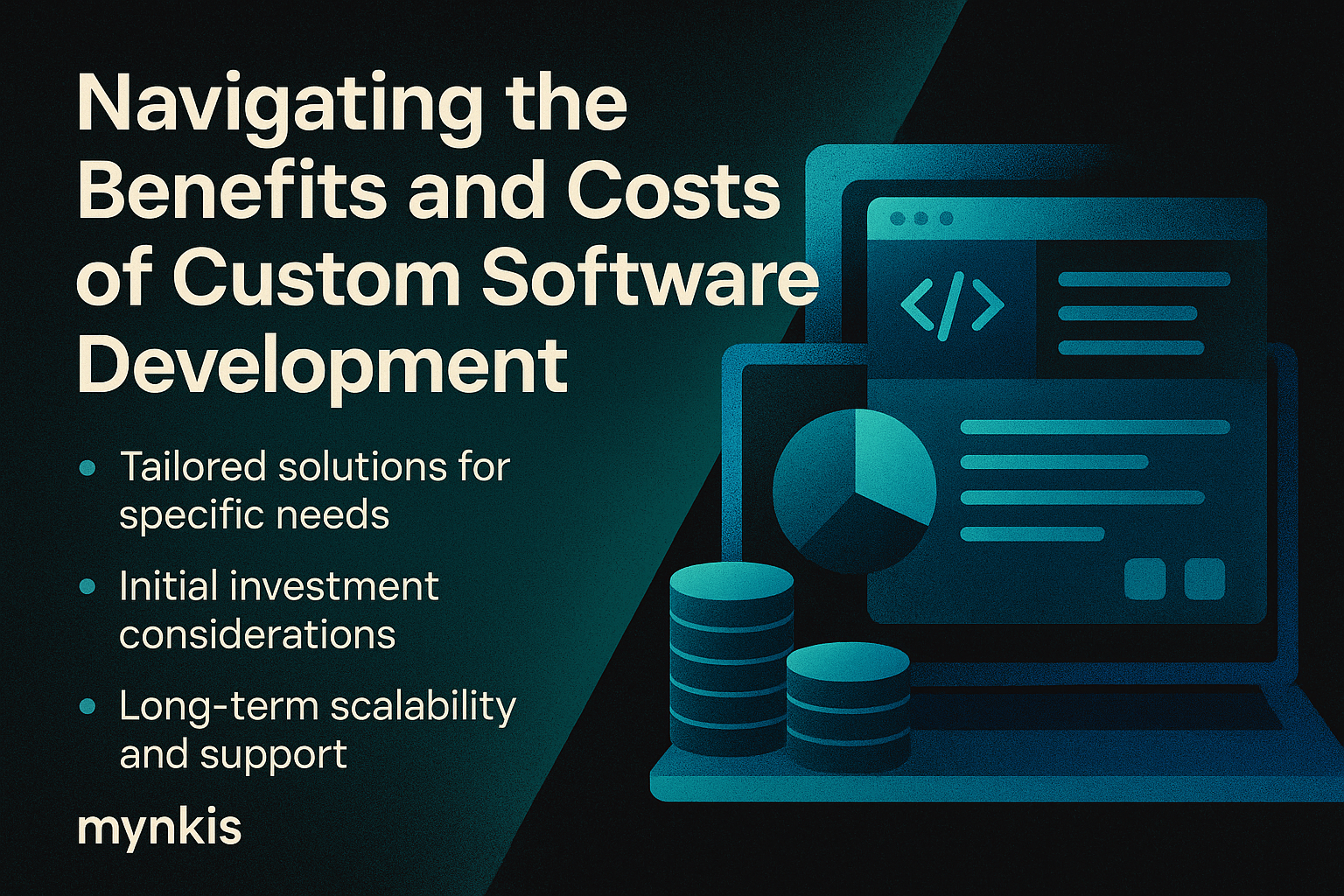Schedule a Demo
When I work with business owners, there's a recurring theme: the search for a digital solution that not only meets their unique needs but also feels like it was made just for them. Custom software development is not just about writing code; it's about sculpting a digital experience that aligns perfectly with your business vision. From enhancing customer engagement to streamlining operations, the allure of custom solutions lies in their potential to propel your company to new heights.
One of the paramount benefits of choosing custom software development is scalability. As your business grows, so can your software, adapting seamlessly without the need for an overhaul. But scalability is just the tip of the iceberg. Custom solutions also allow for unparalleled integration with existing systems, ensuring a smoother operational flow and reducing the likelihood of technical debt down the line.
Then, there's the aspect of user experience. I've seen firsthand how a tailored user interface can boost conversion rates and enhance customer loyalty. The beauty of custom software is that it can be designed with your specific user journey in mind, thereby improving satisfaction and retention. When users feel understood and their needs are met efficiently, they're more likely to engage positively with your brand.
Consider a retail business that needed a robust e-commerce platform. Off-the-shelf solutions were too generic, leaving them with a product that didn't meet their need for advanced inventory management and personalized customer experiences. By investing in custom software development, they not only addressed these needs but also outranked competitors in organic search by creating a highly usable and efficient platform.
In another instance, a healthcare provider was looking to enhance patient portal capabilities. The custom software solution we implemented allowed for real-time appointment booking and a personalized health record system. This not only met legal requirements for healthcare providers but also dramatically improved user satisfaction and engagement.
While the benefits are compelling, it's crucial to talk about the costs associated with custom software development. Upfront costs can be higher than standard off-the-shelf solutions. Development hours, specialized skill sets, and project management all add to the initial expense. However, when balanced against the long-term savings from not having to modify a solution constantly, or facing the limitations of a generic system, custom development can often be more economical in the long run.
Based on available research, individual experiences may vary, but historically, the investment returns from custom solutions have proven to be significant over time. For those looking to create booking-enabled websites or any design-focused digital projects, weighing these costs is essential. It's less about comparing prices and more about envisioning how much your business could gain from such an investment.
Discussing ROI is a natural segue from costs. According to Gartner, enterprises that employ custom software solutions see a consistent increase in user satisfaction scores and often report faster operational turnaround times—a clear metric of efficiency and productivity.(Gartner)
From a budgeting perspective, it's worthwhile to consider phased implementations. Tackling the project in stages not only spreads out the financial commitment but also allows for iterative improvements based on user feedback. This can be particularly effective for businesses developing user conversion-focused designs, where continuous adjustments can be pivotal for success.
Design plays a critical role in enterprise web solutions, especially when aiming for improved user conversion rates. With custom development, you have the freedom to design every element, from call-to-action buttons to the overall flow of the site, ensuring that each interaction is as intuitive and compelling as possible.
This approach stands in stark contrast to generic solutions where your business must adapt to the software's constraints. By setting the design parameters around your users' needs and behaviors—perhaps gleaned from heat maps, analytics, and user interviews—you're not just hoping to get conversions but optimizing for them.
Organic search is a non-negotiable element of modern business strategies. A strong SEO strategy combined with a tailored custom software development can significantly enhance your site's visibility on search engine result pages (SERPs). Since custom software allows for optimized content structuring, easier updates to meta data, and mobile optimization without clashes, you're set up for improved performance in search.
Think about it like crafting a surfboard: it's all about ensuring the shape and the build cut through the water—or in this case, the algorithms—of major search engines effectively. Custom software lets you fine-tune these elements, achieving improved discoverability without losing the user-focused design of your site.
Success in custom software development—and consequently, the benefits it brings—plays out over the long term. It's less about instant gratification and more about building foundations for sustained growth. Yes, setting up requires a significant up-front investment, but what you're really purchasing with custom development is adaptability and future readiness. In a world of rapidly changing digital landscapes, such flexibility is not just useful, it's indispensable.
This foresight is crucial for business leaders and executives intent on not just keeping up but staying ahead. Technological adaptability ensures that investments in custom solutions are not just side-steps away from competitors, but leaps forward toward future success.
